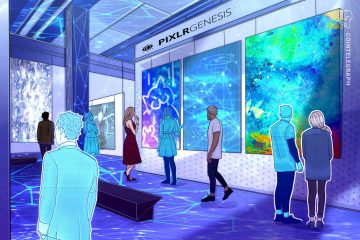
While non-fungible tokens (NFTs) have been circulating the internet for quite some time, many people remain confused in terms of the explanation, function, and overall reliability of NFTs. As our generation enters the “Metaverse” (interconnected platform of 3D digital worlds), here is a guide to better understand NFTs.
First of all, NFTs exist on the Ethereum blockchain. The Ethereum blockchain is a decentralized platform using cryptocurrency, where smart contracts (transactions without central authority) can be made between different individuals. Essentially, NFTs are digital assets and records, such as an audio recording, a jpg image, or art. Furthermore, they offer authentication of property and possessions, including a cryptographic key that rejects any copying or eradication.
On the plus side, NFTs offer exposure to musicians and artists alike. One of the most prominent collections of NFTs at the moment is The Bored Ape Yacht Club, which has been sold to buyers for millions. In addition, NFTs are a new business opportunity for many businesses, especially those that are tapping into the Metaverse and NFT craze. For example, brands like Miss Universe have already begun selling images and videos from their archive. Others like the newest Adidas Originals x Prada collaboration have sparked much media frenzy with their Re-Nylon collection-inspired NFT art project; it consists of crypto design and fashion concepts that will be brought to life by gaming website Polygon Studios and digital artist Zach Lieberman. Besides NFT’s benefit to businesses and professions, it also has a significant stake in the virtual real estate development scene. In fact, NFTs can help formulate the transaction between buyers and sellers of real estate, as they are indisputable ownership proof and adheres to Metaverse property rights. For example, according to Financial Times, “digital property investment fund Republic Realm bought a parcel of land in Decentraland for more than US$900,000. Republic Realm, owned by investment fund Republic, is turning the plot into a virtual mall called Metajuku, modeled after the Harajuku district in Tokyo.”
Senior Kaisa F. at AISG gave her opinion on the topic: “I do not trust NFTs, because I feel like it might not be a sustainable marketplace.”
Voicing similar opinions, another senior at AISG, Robert Y., expressed his concerns on NFTs. “I know that a lot of people are making money out of this, but it must offer many opportunities for fraud.”
Overall, it is understandable that many people may possess the same concerns regarding NFTs. However, it is important to approach NFTs and the Metaverse with an open mind as it is a significant step towards the future of tech and social media.